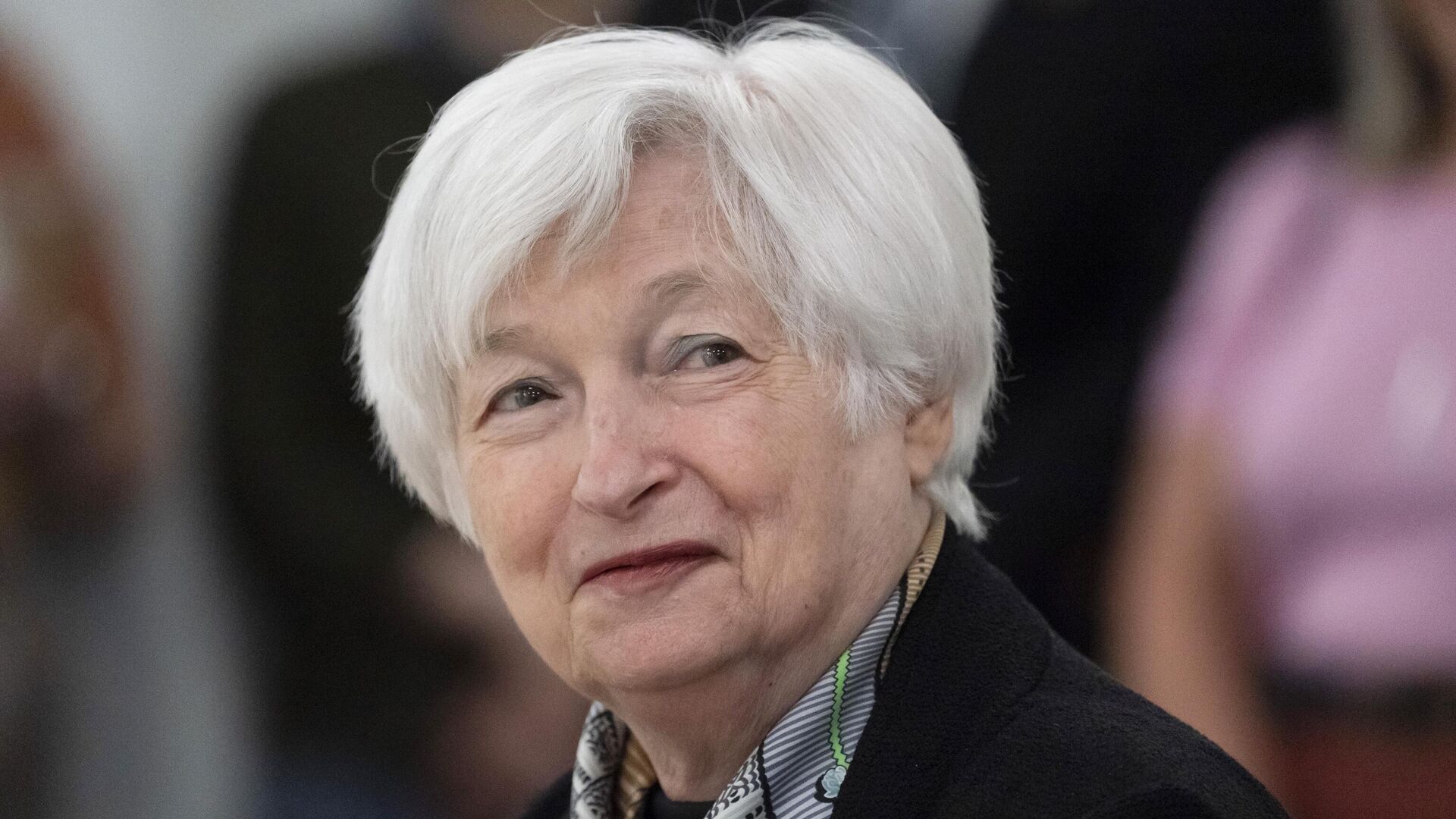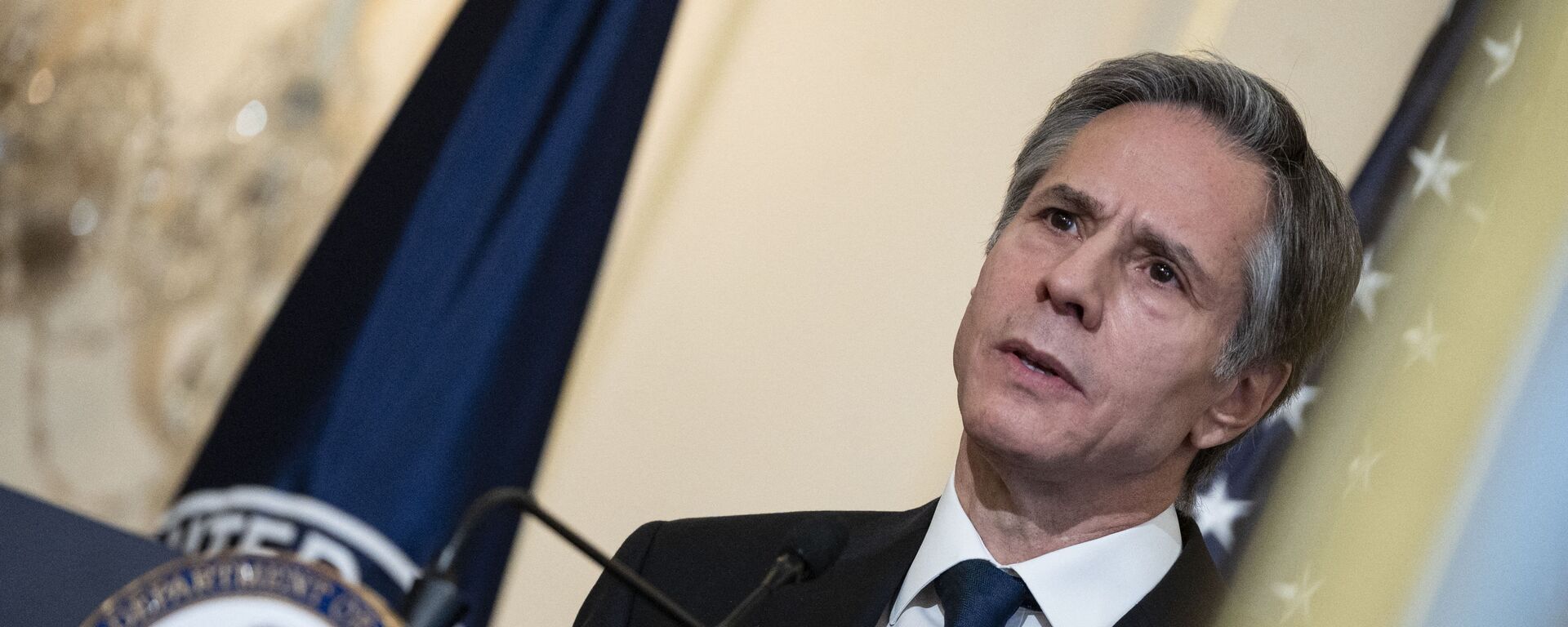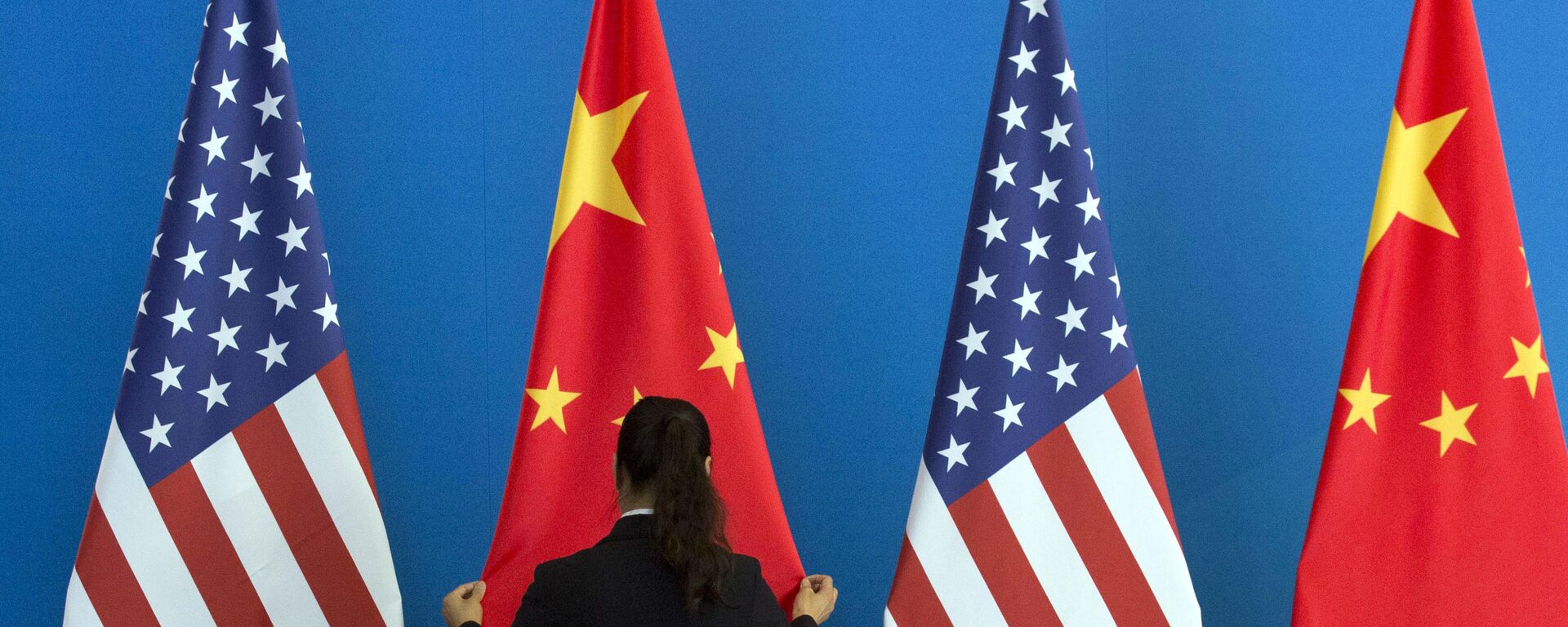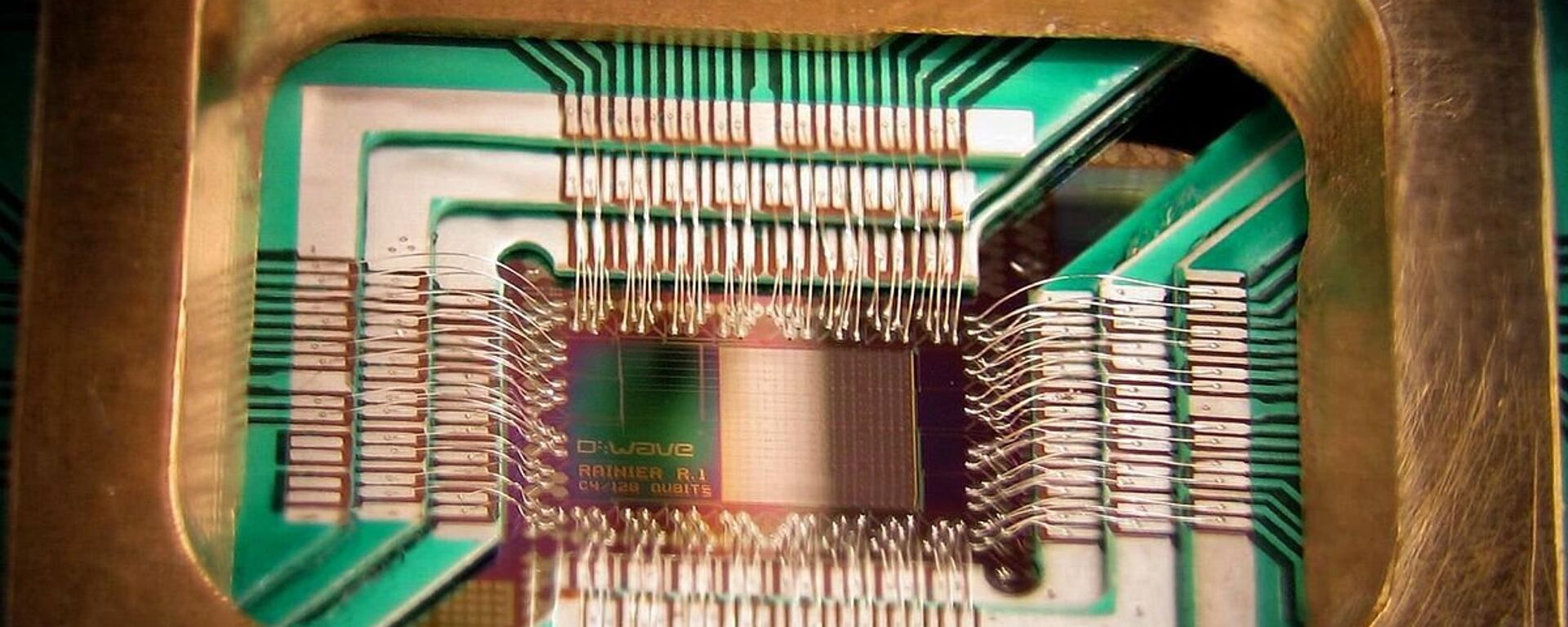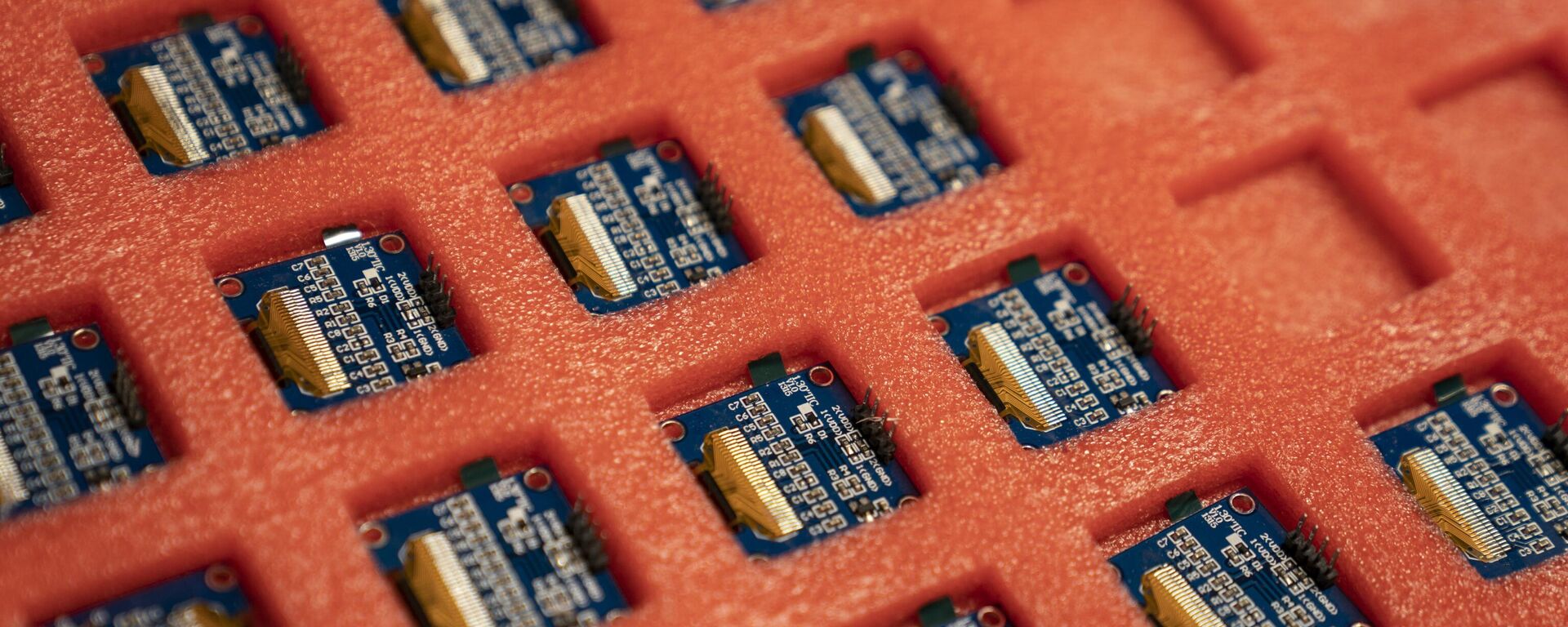https://sputnikglobe.com/20230627/is-yellens-china-trip-part-of-a-good-cop-bad-cop-game-1111508724.html
Is Yellen's China Trip Part of a Good Cop-Bad Cop Game?
Is Yellen's China Trip Part of a Good Cop-Bad Cop Game?
Sputnik International
Treasury Secretary Janet Yellen is fixing to visit Beijing in early July while President Joe Biden plans an order to restrict outbound investments in China's defense industry and dubs Chairman Xi Jinping a "dictator."
2023-06-27T18:48+0000
2023-06-27T18:48+0000
2023-06-27T18:48+0000
joe biden
janet yellen
antony blinken
china
americas
us
beijing
nato
treasury
chips
https://cdn1.img.sputnikglobe.com/img/07e7/01/19/1106674312_0:97:3073:1825_1920x0_80_0_0_fda382673f4b28a9604e4107f2c34d91.jpg
Janet Yellen is expected to hold the first US-China high-level economic talks next month, the US mainstream press reported citing people familiar with the treasury secretary's scheduling.She is due to meet her counterpart, He Lifeng, named by the US media a "longtime confidant of Xi." He became China's vice premier responsible for economic policy in March.Yellen would be the second top-ranking official to visit Beijing as relations between the two major powers have seen deterioration for quite a while. Earlier, Secretary of State Antony Blinken made a trip to the People's Republic after delays caused by the so-called "spy balloon" scandal spun out by Washington.Even though Blinken's China tour was called somewhat "productive" by both sides, US-China remain bumpy. Following the secretary of state's high-level meeting with the People's Republic, President Joe Biden publicly called his Chinese counterpart Xi Jinping a "dictator", much to Beijing's displeasure.Instead of downplaying the commander-in-chief non-diplomatic wording as a "gaffe", the US administration defended the president's stance with Secretary of State Blinken claiming that Biden "speaks for us all."For her part, Yellen emphasized the importance of maintaining a relationship with China despite having disagreements on certain issues: While someone would call it a "good cop-bad cop" game, it is clear that Yellen's forthcoming economic talks won't be easy in the light of a new investment executive order considered by the Biden administration. The order in question would restrict outbound investments in China’s defense industry. It is expected that it could be signed in late July.As per the US press, the initiative is aimed at preventing Beijing from gaining a military advantage in certain targeted technologies. It seems, however, to be another step in Washington's broader effort to contain China's technological rise by cracking down on its telecom giants and cutting it off from semiconductor technologies, super-computing and artificial intelligence. Hence, Biden's CHIPS Act and the Commerce Department announcement of new export controls on semiconductor technologies in October 2022.The US does not act alone, persuading its allies and partners across the world to adopt similar approaches and policies – sometimes, in clear contradiction with their own national interests.Washington's efforts to curb China's rise go well beyond the economic sphere: the US is beefing up its military presence in the Asia-Pacific region together with its NATO allies and regional partners. The US has also formed regional alliances and is currently closing ranks with the UK and Australia within the framework of AUKUS, a tripartite military alliance. Concurrently, US policymakers are continuing to poke Beijing over Taiwan and are openly voicing concerns that the island's next elections in January 2024 could be won by a "pro-China" Kuomintang party.Despite trying to play hardball diplomacy with China, the US economy still remains largely intertwined with that of the People's Republic. In 2022, the US annual goods-trade deficit with China increased 8% year-on-year to $382.9 billion. The US overall trade deficit in goods and services with world players mounted 12.2% to almost $1 trillion last year.For its part, China adopted a "wait-and-see" approach: while chastising the US for what seems to be unfair economic maneuvers and sheer provocations in Beijing's backyard, the Chinese leadership remains calm and open for cooperation. At the same time, China is propelling the internationalization of the yuan and little-by-little shifting from the dollars to local currencies. Time will tell whether Yellen's charm offensive will prove successful and whether Washington has more trump cards up its sleeve than Beijing.
https://sputnikglobe.com/20230625/he-speaks-for-us-all-blinken-defends-bidens-dictator-remark-on-xi-1111460414.html
https://sputnikglobe.com/20230626/yellen-reportedly-plans-visit-to-china-in-july-amid-us-investment-curbs-on-beijing-1111483605.html
https://sputnikglobe.com/20230620/intel-inks-hefty-german-plant-deal-as-us-seeks-to-bring-back-chip-industry-lost-to-asia-1111323921.html
https://sputnikglobe.com/20230522/beijing-banning-micron-means-china-has-mastered-chip-making-1110523565.html
china
americas
beijing
Sputnik International
feedback@sputniknews.com
+74956456601
MIA „Rossiya Segodnya“
2023
News
en_EN
Sputnik International
feedback@sputniknews.com
+74956456601
MIA „Rossiya Segodnya“
Sputnik International
feedback@sputniknews.com
+74956456601
MIA „Rossiya Segodnya“
janet yellen trip to china, treasury secretary janet yellen, joe biden dictator remark on xi, us-china relations, us military presence in asia pacific, pivot to asia, us economy, us-china trade deficit, biden executive order on china investment, taiwan island, us taiwan provocation
janet yellen trip to china, treasury secretary janet yellen, joe biden dictator remark on xi, us-china relations, us military presence in asia pacific, pivot to asia, us economy, us-china trade deficit, biden executive order on china investment, taiwan island, us taiwan provocation
Is Yellen's China Trip Part of a Good Cop-Bad Cop Game?
Treasury Secretary Janet Yellen is fixing to visit Beijing in early July while President Joe Biden plans an order to restrict outbound investments in China's defense industry and dubs Chairman Xi Jinping a "dictator."
Janet Yellen is expected to hold the first US-China high-level economic talks next month, the US mainstream press reported citing people familiar with the treasury secretary's scheduling.
She is due to meet her counterpart, He Lifeng, named by the US media a "longtime confidant of Xi." He became China's vice premier responsible for economic policy in March.
Yellen would be the second top-ranking official to visit Beijing as relations between the two major powers have seen deterioration for quite a while. Earlier, Secretary of State Antony Blinken made a trip to the People's Republic after delays caused by the so-called "spy balloon" scandal spun out by Washington.
Even though Blinken's China tour was called somewhat "productive" by both sides, US-China remain bumpy. Following the secretary of state's high-level meeting with the People's Republic, President Joe Biden publicly called his Chinese counterpart Xi Jinping a "dictator", much to Beijing's displeasure.
"It is a blatant political provocation. China expresses strong dissatisfaction and opposition," said Foreign Ministry spokesperson Mao Ning in response to the US president's remark.
Instead of downplaying the commander-in-chief non-diplomatic wording as a "gaffe", the US administration defended the president's stance with Secretary of State Blinken claiming that Biden
"speaks for us all."For her part, Yellen emphasized the importance of maintaining a relationship with China despite having disagreements on certain issues:
"With respect to the comments, I think President Biden and I both believe it’s critical to maintain communication… to clear up misperceptions, miscalculations. We need to work together where possible," she stated at a news conference in Paris last week.
While someone would call it a "good cop-bad cop" game, it is clear that Yellen's forthcoming economic talks won't be easy in the light of a new investment executive order considered by the Biden administration. The order in question would restrict outbound investments in China’s defense industry. It is expected that it could be signed in late July.
As per the US press, the initiative is aimed at preventing Beijing from gaining a military advantage in certain targeted technologies. It seems, however, to be another step in Washington's broader effort to contain China's technological rise by cracking down on its telecom giants and
cutting it off from semiconductor technologies, super-computing and artificial intelligence. Hence, Biden's
CHIPS Act and the Commerce Department announcement of new export controls on semiconductor technologies in October 2022.
The US does not act alone, persuading its allies and partners across the world to adopt similar approaches and policies – sometimes, in clear contradiction with their own national interests.
During the latest G7 meeting, the group of developed states proclaimed that they worked out a unified approach to China calling it "de-risking" and "diversifying" their relations with the People's Republic. In response, Beijing accused the Group of Seven of holding an anti-China meeting and summoned Japan's ambassador.
Washington's efforts to curb China's rise go well beyond the economic sphere: the US is beefing up its military presence in the Asia-Pacific region together with its NATO allies and regional partners. The US has also formed regional alliances and is currently closing ranks with the UK and Australia within the framework of AUKUS, a tripartite military alliance. Concurrently, US policymakers are continuing to poke Beijing over Taiwan and are openly voicing concerns that the island's next elections in January 2024 could be won by a "pro-China" Kuomintang party.
Despite trying to play hardball diplomacy with China,
the US economy still remains largely intertwined with that of the People's Republic. In 2022, the US annual goods-trade deficit with China increased 8% year-on-year to $382.9 billion. The US overall trade deficit in goods and services with world players mounted 12.2% to almost $1 trillion last year.
For its part, China adopted a "wait-and-see" approach: while chastising the US for what seems to be unfair economic maneuvers and sheer provocations in Beijing's backyard, the Chinese leadership remains calm and open for cooperation. At the same time, China is propelling the
internationalization of the yuan and little-by-little
shifting from the dollars to local currencies. Time will tell whether Yellen's charm offensive will prove successful and whether Washington has more trump cards up its sleeve than Beijing.
